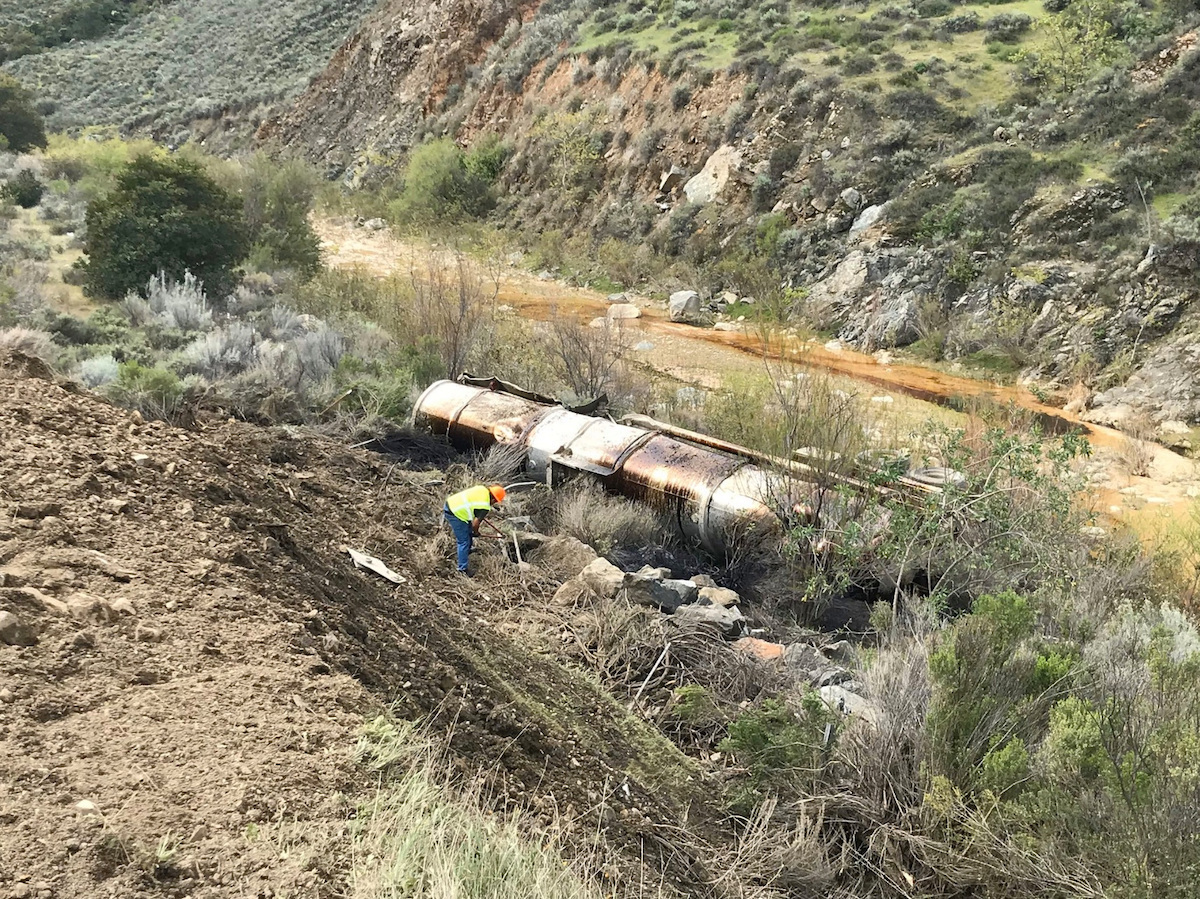[Updated: Tue., Oct. 3, 2023, 10:14am]
Federal District Judge Dolly Gee ruled last week that the Santa Barbara County supervisors did not abuse their discretion in denying ExxonMobil’s request to truck oil from its Santa Ynez Unit processing plant to a refinery in Kern County, as ExxonMobil charged.
She also found the supervisors had been presented with evidence — which she described alternately as “substantial” and “voluminous” — that the 70 truck trips a day the company requested posed a significant safety risk of accidental spillage along Highway 166, much of which runs along the Cuyama River. Moreover, Gee ruled that ExxonMobil had no vested rights to truck its oil under the permits the company originally secured in 1987; the supervisors, Gee ruled, had the discretion to grant trucking permits to ExxonMobil, but it was a matter of “may” rather than “shall.”
The supervisors voted 3-2 to deny ExxonMobil’s request last March, citing the unmitigable risk — according to the environmental report — posed by an accident along Highway 166’s steep inclines hairpin curves. The judge noted that trucking opponents unearthed newer and fresher evidence that had not been included in the environmental impact report’s traffic analysis. That analysis, the judge found, relied on “statistical probabilities,” while the supervisors considered “the “actual history,” which involved “14 tanker truck accidents in 15 years, eight of which occurred along the planned route.” Judge Gee also noted how the driver of an oil tanker lost control of his vehicle in September 2020, spilling 4,500 gallons of oil into the Cuyama River.
After last March’s vote, ExxonMobil wasted little time making good on its promise to sue, filing suit in May 2022. The company charged the supervisors gave undue weight to anecdotal accounts of hazardous road conditions by anti-oil activists — in furtherance of the three supervisors’ own anti-oil politics — while ignoring the conclusions rendered by professional transportation analysts who found the additional truck traffic posed only a slightly elevated risk.
“There is no evidence of any Board member improperly ‘bowing to political pressures over their better judgement,’” Gee ruled, “since each one expressed rational reasons supported by the evidence to justify their exercise of discretion on this vote.”
ExxonMobil spokesperson Michelle Gray issued the company’s response. “We are reviewing the Court’s ruling, its recognition that we have a right to operate our existing facilities and affiliated pipelines in the county, and will evaluate next steps.” Gray added that ExxonMobil proposed the trucking plan only as a “temporary solution” until a pipeline is reopened. The pipelines upon which ExxonMobil relied was rendered inoperable in 2015 by the rupture of the Plains All American Pipeline Company’s pipeline that effectively shut down all offshore production in Santa Barbara County.
Gee’s ruling hardly settles the matter. ExxonMobil also sued the supervisors on multiple constitutional grounds, including unlawful taking. Those matters will be next addressed in court on October 27.




